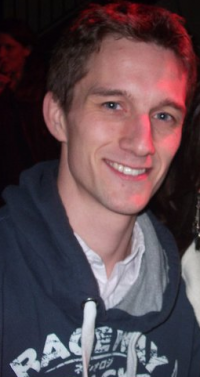Mathematical Physics graduate awarded Fulbright scholarship

Mathematical Physics graduate Alastair Heffernan is the only physicist among this year's Fulbright Commission Postgraduate scholars. He tells us how he won this prestigious scholarship.
The Fulbright Commission offers the most sought-after set of postdoctoral awards available to UK undergraduates looking to study for a masters or PhD in the US. An unfortunate consequence of this prestige is that many students are dissuaded from applying. I hope this summary of my route to a Fulbright scholarship will give insight into the programme and dispel some common misunderstandings.
I applied for a US-UK Fulbright Commission Postgraduate award in May 2011, which shows the need to start thinking about your PhD as early as possible. The process has changed substantially this year, however it is still necessary to think about applying for the Fulbright programme in your penultimate year to prepare for the required references (three, when I applied).
There is no avoiding the fact that you will need an exemplary academic record to make it to interview. For this stage of the process, the more academic awards and formal positions in societies the better. Having survived this round I was invited to interview.
"Throughout his Master's project, Alastair showed genuine enthusiasm and strong ambition to understand things to the end. His calculations were meticulous, and he always got things right." Einan Gardi, Alastair's Masters project supervisor
So far, so extremely-competitive-scholarship. The interview stage, however, is where my advice might diverge from what you would expect. Academic acumen gets you in the door, but simply reiterating your academic merit isn’t enough because at this stage your ability to discourse well on any subject is tested.
In my interview we spent more time discussing Philip Zimbardo’s 1970s prison-simulation study than we did dark energy (my particular area of interest). The reason for this being that I was asked to explain the 2011 UK riots to an ‘average Joe’ American. I chose to reject the budget cuts as principle cause hypothesis and gave an explanation based upon the ease with which ‘good’ people act illegally or immorally simply as a consequence of finding themselves in extremely unusual situations. I used the Zimbardo experiment along with the Abu Ghraib prisoner abuse scandal to justify my position. This example highlights how the Fulbright interview will probe the range of your intellectual capabilities in addition to your erudition in one particular field.
This year the process is rather different after the interview stage so I will leave this portion of the story out. Suffice to say I applied to New York University’s Centre for Particle Cosmology and am moving to Manhattan in (apologies for this) the Fall.
Intellectual curiosity
A key aspect of the Fulbright experience is the Orientation, a three-day programme of events in London in July that brought together all the awardees. Meeting all my fellow Fulbrighters reinforced my belief that what Fulbright looks for in its participants is not just academic excellence, but a multifaceted intellectual curiosity that defines its scholars. Everyone I spoke to over the three days was fascinated by, and well informed about, the pursuits of all of the other awardees. Furthermore they had a keen interest in current affairs and contributed to the most abstruse conversations.
I believe this wide-ranging knowledge is a key asset of the Fulbrighters. The Commission prides itself in backing future world leaders and heads of industry, as well as pure academics. If you can demonstrate broad knowledge to Fulbright – in addition to your scholarly qualifications – you will considerably improve your chances of being afforded this amazing opportunity.

